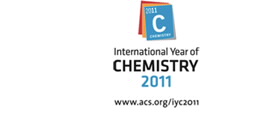FOR IMMEDIATE RELEASE | September 02, 2010
American Chemical Society Webinar focuses on providing scientific advice to the film industry
WASHINGTON, Sept. 2, 2010 — News media and others interested in the chemical sciences are invited to join the next in a series of American Chemical Society (ACS) Webinars™, focusing on opportunities for scientists to consult for the film industry
Scheduled for Thursday, Sept. 9, from 2 – 3 p.m. EDT, the free ACS Webinar™ will feature Barry J. Byrne, M.D., Ph.D., of the University of Florida, speaking on How Scientific Skills are Used in Advising the Movie Industry – Facts and Fiction. He provided scientific expertise in the making of the movie Extraordinary Measures, released in January 2010. The film depicts the true story of a father’s struggle to save his two children from Pompe disease, a rare genetic disorder that damages the heart and muscles and is often fatal. Byrne is an international authority on the disorder.
ACS Webinars™ connect you with subject experts and global thought leaders in chemical sciences, management and business to address current topics of interest to scientific and engineering professionals. Each webinar includes a short presentation followed by a Q & A session.
News media and scientists can tune into the conference without charge, but must register in advance.
Byrne’s topic will include:
- How media can be used to enhance the public perception of scientific discovery
- How the movies have helped the public understanding of how drugs are developed for rare diseases
- Creating the picture –– the process of scientific discovery and clinical research
- The importance of getting community support for scientific research
- Career opportunities for scientific professionals in the film industry
Byrne is Associate Chair and Professor of Pediatrics and Molecular Genetics and Microbiology, College of Medicine, Department of Pediatrics, Molecular Genetics and Microbiology at the University of Florida in Gainesville. He directs the Powell Gene Therapy Center at the University. His laboratory focuses on molecular approaches to diagnosis and treatment of heart failure in infants and children. The staff’s therapeutic approaches rely on gene therapy in animal models of heart failure and clinical studies in human subjects.
###
Media Contact
Michael Bernstein
202-872-6042
m_bernstein@acs.org
Michael Woods
202-872-6293
m_woods@acs.org


